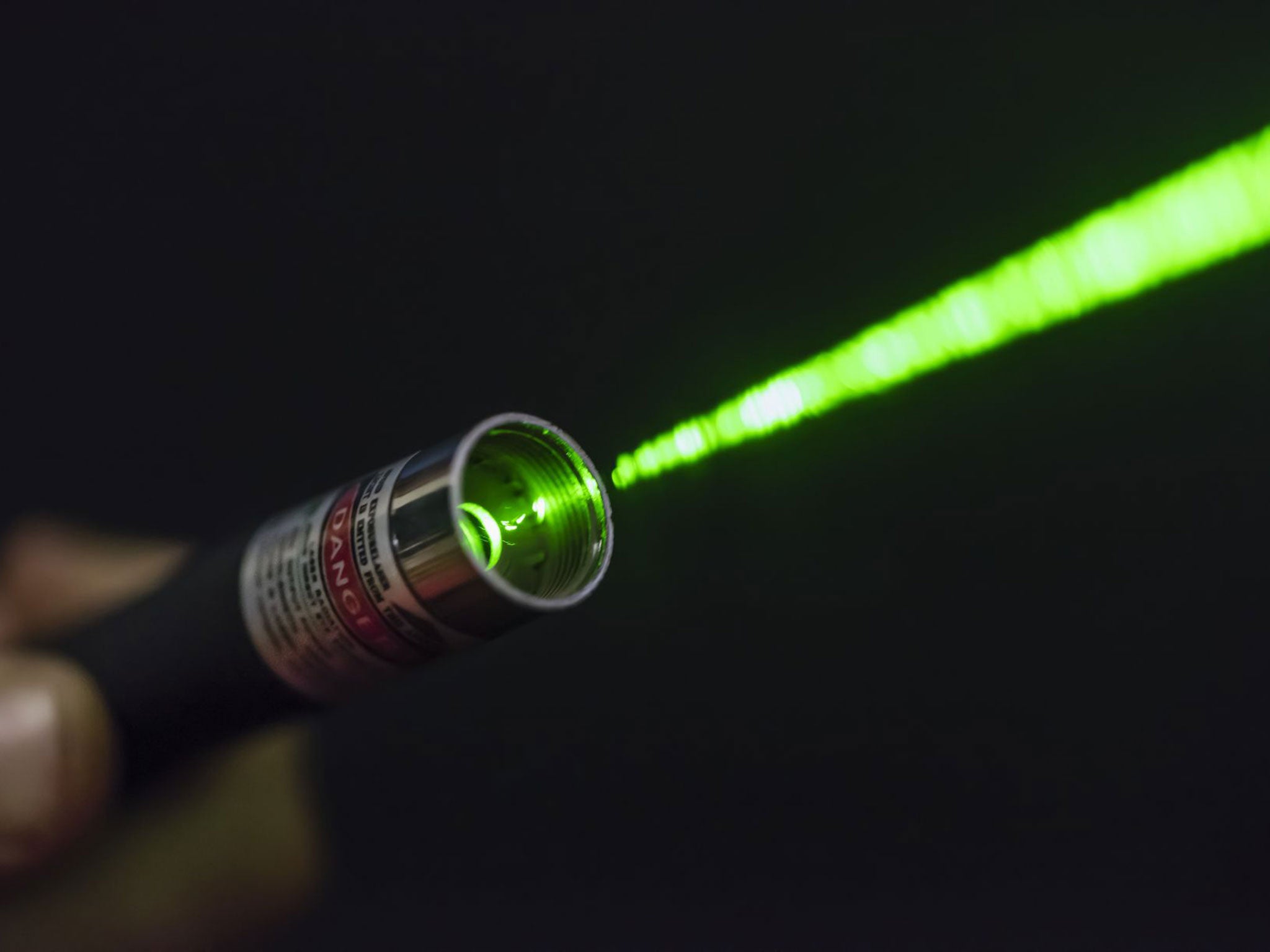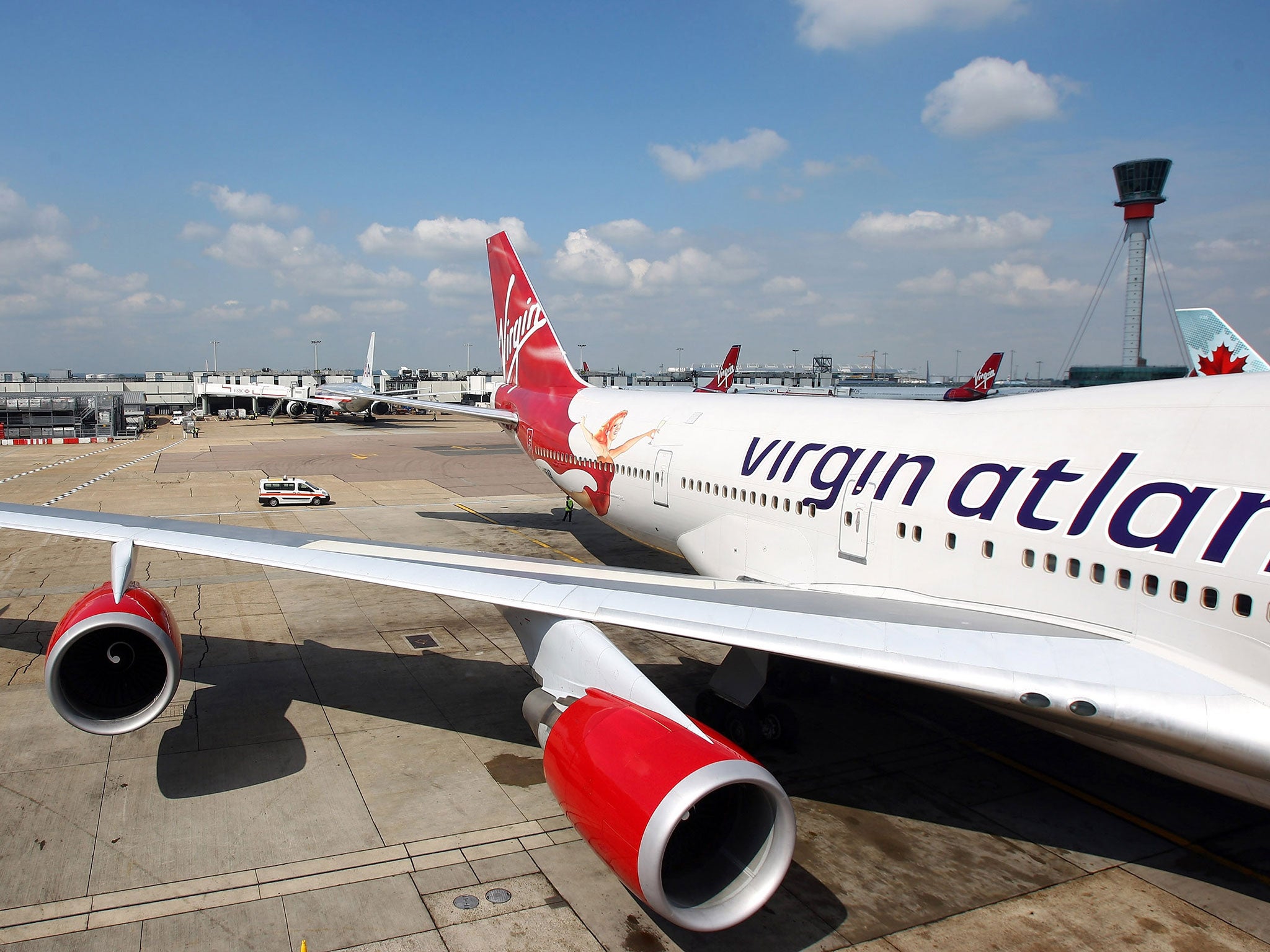Airline pilots call for laser pointers to be criminalised after Virgin Atlantic plane 'laser strike'
Heathrow incident involving Virgin jet prompts union to urge police to class gadgets as offensive weapons

Powerful laser pointers should be classed as offensive weapons to help police to crack down on people using them against aircraft, the British Airline Pilots Association (Balpa) has said.
The demand comes after a Virgin Atlantic passenger plane was forced to return to Heathrow airport when a co-pilot suffered ill-effects from a laser directed at the cockpit during take-off on on 14 February.
“Following this incident the First Officer reported feeling unwell. The decision was taken by both pilots to return to Heathrow rather than continue the transatlantic crossing,” said a message on the airline's flight status website.
Bethany McHutchinson, one of the passengers on the plane, which had 252 people and 15 crew on board, said: “I think it's really scary, whether it was by accident or on purpose...it could have put everyone's lives on the plane in danger.”
In a statement, a Metropolitan Police spokesperson said: “Enquiries continue to establish where the offence took place. There have been no arrests.”
The incident is the latest example of a growing problem. In 2009, some 746 incidents involving lasers at airports across Britain were reported to the Civil Aviation Authority (CAA). The number reached 1,440 by 2014. And there were more than 400 incidents in the first half of 2015.

“Shining a laser at an aircraft in flight could pose a serious safety risk and it is a criminal offence to do so. Anyone convicted of shining a laser at an aircraft could face a significant fine or even imprisonment should the safety of an aircraft be endangered,” said a CAA spokesperson.
More needs to be done, according to Jim McAuslan, general secretary, Balpa: “We repeat our call to the Government to classify lasers as offensive weapons which would give the police more power to arrest people for possessing them if they had no good reason to have them. This incident shows why this is becoming more and more urgent.”
And Zac Mader, police air services lead for the Police Federation of England and Wales said: “Laser attacks are now a huge problem and, as we have seen today in the Virgin incident, can potentially jeopardise the lives of hundreds of air passengers as well as flight crew.”
John Tyrer, professor of optical instrumentation at Loughborough University, commented: “If the laser is bought from reputable UK supply sources there are power density limits placed on these devices so that they can't cause any damage to the eye.”
He added: “However, there are people that buy these things off the internet which are shipped in typically from the Far East - which are very, very powerful.”
But banning laser devices would be counterproductive, he argued: “We’ve seen, in countries where they have done that, instantly overnight the attacks went up by a factor of a hundred.”
Professor Tyrer, who has designed safety equipment used by police officers as protection against lasers, said: “Our visor film could be attached to a pair of over-glasses that the pilot and their co-pilot can wear at take-off and landing, without limiting their vision or functionality. We are already exploring the film’s use for helicopter pilots.”
And Ollie Dismore, director of operations for the National Police Air Service, said: “We are currently conducting a laser eyewear protection trial which we hope will better support us to protect our staff against this threat in future.”
Join our commenting forum
Join thought-provoking conversations, follow other Independent readers and see their replies
0Comments